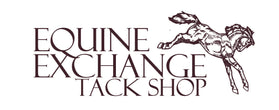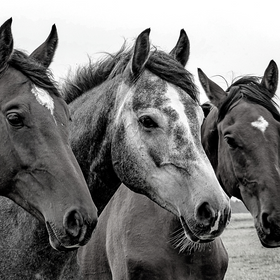
What Is a Coggins Test and Why Is It Important for Horses?
If you’re a horse owner, enthusiast, or spend time around equine events, you’ve likely heard the term “Coggins test.” But what exactly is it, and why is it such a critical requirement in the horse world? Let’s break it down.
What Is a Coggins Test?
A Coggins test is a blood test that checks for the presence of Equine Infectious Anemia (EIA), a highly contagious and potentially fatal viral disease that affects horses, mules, and donkeys. The test is named after Dr. Leroy Coggins, the veterinarian who developed it in the 1970s.
EIA is caused by a retrovirus and is typically transmitted through blood-sucking insects like horseflies and deerflies. It can also spread via contaminated equipment such as needles, surgical tools, or even grooming supplies. While some horses with EIA show obvious symptoms, others can be carriers without displaying any signs, making regular testing crucial.
Why Is the Coggins Test So Important?
-
Detects a Serious Disease EIA is incurable, and infected horses remain carriers for life. Symptoms can range from fever, lethargy, and weight loss to severe anemia and death. Regular Coggins testing helps identify infected animals, preventing the disease from spreading to other horses.
-
Protects Horse Communities Because EIA is highly contagious, one infected horse can pose a significant risk to others in close proximity. Testing ensures that horses traveling to shows, sales, barns, or trails are disease-free, safeguarding equine communities.
-
Compliance with Legal Requirements Many states and organizations require a negative Coggins test for horses traveling across state lines, attending competitions, or entering boarding facilities. Keeping your horse’s Coggins paperwork up-to-date ensures you’re compliant with these regulations.
-
Peace of Mind For horse owners, a negative Coggins test provides reassurance that your horse is healthy and not a risk to others. It’s a simple step that supports both individual and community-wide equine health.
What Happens If a Horse Tests Positive?
A positive Coggins test is a serious matter. Unfortunately, there is no treatment or cure for EIA. Horses that test positive must either be euthanized or permanently quarantined in isolation at least 200 yards away from other horses to prevent transmission. This underscores the importance of regular testing and preventive measures.
How Often Should a Horse Get a Coggins Test?
Most states require horses to have a negative Coggins test within the past 12 months, although the frequency may vary depending on your location and intended horse activities. For horses that frequently travel or attend events, annual testing is typically required.
How Can You Protect Your Horse from EIA?
While there is no vaccine for EIA, there are steps you can take to reduce your horse’s risk of exposure:
-
Test Regularly: Ensure your horse has a current Coggins test.
-
Control Insects: Use insect repellents and fly control measures to minimize exposure to biting insects.
-
Practice Biosecurity: Avoid sharing needles, syringes, or equipment between horses. Keep your horse’s environment clean and free from standing water where flies breed.
-
Be Cautious When Introducing New Horses: Always require proof of a negative Coggins test before bringing new horses into your barn or pasture.
Conclusion
The Coggins test is more than just a piece of paperwork—it’s a vital tool in protecting the health and well-being of horses everywhere. By staying informed and vigilant, you’re not only safeguarding your own horse but also contributing to the overall health of the equine community. If your horse’s Coggins test is overdue, schedule an appointment with your veterinarian today.
Your horse’s health is worth it!





